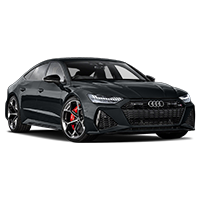At CarsBat.com, you can get pricing for 3 new and used Audi RS7 in a variety of
configurations and years. We provide price information for this popular car in countries such as:
Belgium, United Kingdom, Germany, Denmark, Italy, Luxembourg, Netherlands, Poland, United States, France, Czech, Sweden.
Our database contains current prices for Audi RS7, which vary depending on mileage,
condition and equipment of the car. You will be able to compare the price of different versions of Audi RS7
and choose the best option that fits your budget and preferences.


![Audi RS7 C8 [2019 - Prezent] 4.0 TFSI quattro MHEV Tiptronic 2021 Audi RS7 C8 [2019 - Prezent] 4.0 TFSI quattro MHEV Tiptronic 2021](https://cdn-img.carsbat.com/autovt/7054673222/7054673222.jpg)
![Audi RS7 C8 [2019 - Prezent] 4.0 TFSI quattro Tiptronic 2020 Audi RS7 C8 [2019 - Prezent] 4.0 TFSI quattro Tiptronic 2020](https://cdn-img.carsbat.com/autovt/7055142900/7055142900.jpg)
![Audi RS7 C7 [2013 - 2019] 4.0 TFSI Quattro CoD Tiptronic 2016 Audi RS7 C7 [2013 - 2019] 4.0 TFSI Quattro CoD Tiptronic 2016](https://cdn-img.carsbat.com/autovt/7056427736/0_wuazzz4g8fn901639_ebzk.jpg)